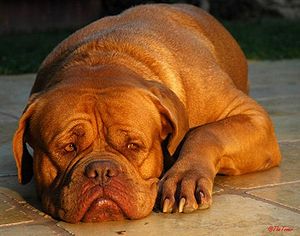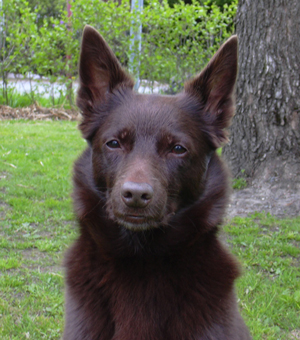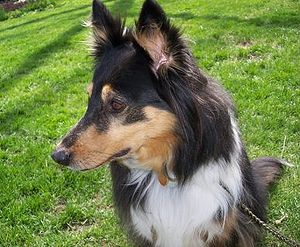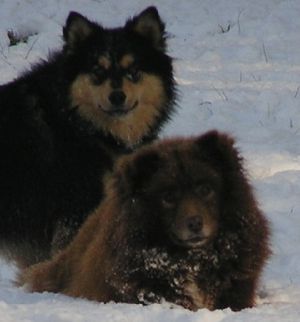 |
| Vital Statistics: |
| Place of Origin: France |
| Group: Working dog |
| Height: males 23-27 in., females 22-25 in. |
| Weight: 99-110 lbs. |
| Life span: 8-10 yrs. |
| Trainability: moderate |
| Good with children: must have early socialization |
| Good with other pets: not usually unless socialized early |
November’s Dog of the Month
This devoted family companion is the oldest French Breed.
What is the origin of the Dogue de Bordeaux?
The Dogue de Bordeaux is the oldest French breed. Its uncertain ancestry may include The Tibetan Mastiff, Roman Mollosus or Spanish Alano. It was prized by both nobles and the working class. Those dogs of the working class survived the French Revolution. Bordeauxs came to the U.S. in the latter part of the 20th century. This breed is very popular in Europe. It was sometimes called the French Mastiff.
What does the Dogue de Bordeaux look like?
The Dogue de Bordeaux is a powerful dog, 23-27 inches tall, minimum weight of 99-110 lbs. The head is wide with deep wrinkles. The muzzle is short and broad with a pronounced stop. Ears are small, set high, hanging close to the head. Eyes are oval and wide-set. The tail is thick at the base and reaches the hocks. The coat is short and soft. Colors are all shades of fawn, sometimes with white patches and red or black face masks. Grooming needs are weekly brushing. Face wrinkles and eyes should be cleaned daily.
What is the temperament of the Dogue de Bordeaux?
The Bordeaux needs an owner experienced with large breeds. They do not respond to harsh commands, but need early patient, positive obedience training and socialization. They are not good with other dogs and view small pets as prey. Bordeauxs are playful and are good with children. They love their owners unconditionally. They do not tolerate heat well. Bordeauxs need daily long walks and playtime.
What is the Dogue de Bordeaux used for?
They were once used in bull and bear baiting and wild boar hunting. Bordeauxs are natural guard dogs and devoted family companions.
Possible Health Issues
Susceptible to temperature extremes, heart problems, ectropion, entropion, bloat/gastric torsion, epilepsy, hip/elbow dysplasia.
- Akbash Dog
- Alaskan Malamute
- Anatolian Shepherd Dog
- Appenzell Mountain Dog
- Belgian Malinois
- Boxer
- Burnese Mountain Dog
- Canaan Dog
- Chinook
- Deutscher (German) Pinscher
- Doberman Pinscher
- Estrela Mountain Dog
- German Spitz (Giant, Standard, Toy)
- Giant Schnauzer
- Great Dane
- Greater Swiss Mountain Dog
- Greenland
- Irish Red & White Setter
- Kai Ken
- Korean Jindo Dog
- Kuvasz
- Laika
- Leonberger
- Newfoundland
- Norwegian Elkhound
- Rat Terrier
- Rottweiler
- Saint Bernard
- Samoyed
- Siberian Husky
- Standard Schnauzer
- Tibetan Mastiff



